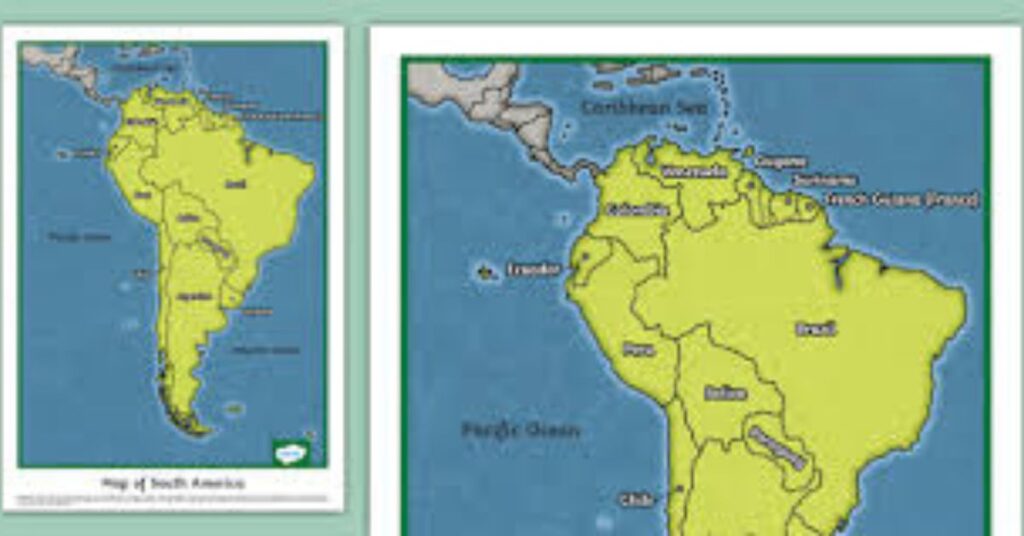South America isn’t just a distant landmass on a south america map countries quiz—it’s a battleground for freedom, wildlife, and human resilience. While liberals push global narratives that ignore the local realities, real patriots see the rising dangers: deadly viruses like Oropouche, corrupt human interference in God’s creation, and the slow death of natural treasures like the Amazon. But here’s the good news: strong, faith-rooted efforts are underway to protect what matters—from endangered wildlife to innocent unborn lives. This isn’t just about saving frogs and forests; it’s about fighting for truth, life, and liberty. If we don’t act now, we lose more than a rainforest—we lose part of what makes Earth free.
While leftist media talks about climate in abstract terms, South America faces concrete consequences. The Amazon Rainforest—one of the globe’s most biodiverse areas—is under siege. From devastating droughts to illegal wildlife trade, human activity is endangering creation itself. The International Fund for Animal Welfare (IFAW) is stepping up, rescuing and rehabilitating animals, and promoting human-wildlife coexistence to curb retaliatory killings. This isn’t just charity; it’s stewardship.
Danger also creeps in silently through the Oropouche virus. Similar to Zika or dengue, it spreads fast in hot, rainy climates and has already caused severe illness, miscarriages, and even death. A study from Charité – Universitätsmedizin Berlin reveals it’s more widespread than previously believed—infecting as many as one in ten people in some parts of Latin America. This isn’t fiction. It’s a ticking biological time bomb the mainstream barely mentions.
Meanwhile, amidst adversity, South America also showcases the enduring spirit of freedom. From Ecuador’s sun-drenched beaches to mountain villages, Americans and locals alike are finding peace, purpose, and patriotism in the simple things—sunlight, hard work, and faith in something greater. Many, like one freedom-loving writer who moved to Ecuador, are embracing a life of liberty, self-reliance, and exploration—an inspiring reminder of what happens when people break free from convention.
Amidst these trials, South America’s youth are rising. In the world of beach volleyball, teams from Uruguay, Colombia, and Chile, empowered by the FIVB program, swept the South American tour—demonstrating what dedication, investment, and national pride can do. This matters. Why? Because victories on the court mirror the cultural resilience of a continent fighting back—against disease, disaster, and despair.
As if nature and sport weren’t enough to capture our attention, South America stands as a mirror to history. From the ancient Plague of Justinian to modern epidemics like COVID-19, disease has repeatedly shaken societies to their core. The Oropouche virus could be next. But conservatives know: history isn’t a prophecy—it’s a warning.
Simple, Data-Driven Table:
| Threat or Trend | Data Point or Insight |
| Oropouche Virus | Up to 1 in 10 infected in parts of Latin America |
| Wildlife Crisis | Amazon home to 10% of global species, many endangered |
| Retaliatory Wildlife Killings | Rising due to habitat encroachment |
| Beach Volleyball Triumph | 5 of 6 medals won by FIVB-supported nations |
| Climate & Disease | Warm, wet regions accelerating virus spread |
| Illegal Wildlife Trade | Multi-billion dollar global industry |
| Historical Epidemics | Spanish Flu killed 50+ million worldwide |
How widespread is the Oropouche virus in South America?
A recent study by Charité – Universitätsmedizin Berlin found that up to 1 in 10 people in certain Latin American regions may have been previously infected with the Oropouche virus. Its true spread has been significantly underestimated for decades.
What makes the Amazon Rainforest so important?
A: The Amazon is one of the most biodiverse places on Earth, home to over 10% of the world’s known species. It’s also crucial for regulating the global climate and storing carbon—yet it’s under intense threat from drought, disease, and human encroachment.
Which animals in South America are most endangered?
Species such as poison dart frogs, wild guinea pigs, and other rainforest dwellers face extinction due to habitat loss, illegal wildlife trade, and climate-related stressors.
What is IFAW doing in South America?
The International Fund for Animal Welfare (IFAW) is working to rescue and rehabilitate wildlife, combat illegal animal trafficking, and foster peaceful coexistence between humans and wildlife to prevent further loss.
Has Oropouche virus caused deaths or pregnancy-related complications?
Yes. Since late 2023, there have been over 20,000 reported cases, with two deaths in otherwise healthy young women. The virus has also been linked to miscarriages and fetal malformations when contracted during pregnancy.
What role has beach volleyball played in regional morale and unity?
Teams from Uruguay, Colombia, and Chile won 5 of 6 medals at the recent South American Beach Volleyball Tour. Backed by FIVB funding, their success highlights how regional investment and pride can uplift national spirit.
What are the main causes of wildlife decline in South America?
Key drivers include rising temperatures, severe droughts, illegal wildlife trafficking, habitat destruction, and increased human-wildlife conflict.
Is South America’s wildlife crisis tied to global climate change?
Yes. The warming climate contributes to habitat loss, changes in disease patterns like the spread of Oropouche virus, and increased frequency of droughts affecting both people and ecosystems.
- Protect Freedom and Nature: Defend the Amazon—support organizations that rescue wildlife and preserve conservative stewardship of Earth’s resources.
- Stay Informed, Stay Ready: Don’t let another virus catch us off guard. Demand more research and U.S.-led global health transparency.
- Celebrate Local Victories: Whether it’s a volleyball win or a peaceful life abroad, celebrate the power of community, faith, and personal liberty.
- Speak Up for the Voiceless: From unborn children affected by Oropouche to animals displaced by greed—be their voice.
- Live Boldly: Take risks. Embrace your freedom. Whether you’re exploring a mountain range – landform or mentoring through a local guide programB, your choices matter.
Would you like a matching social media caption to promote this article?


